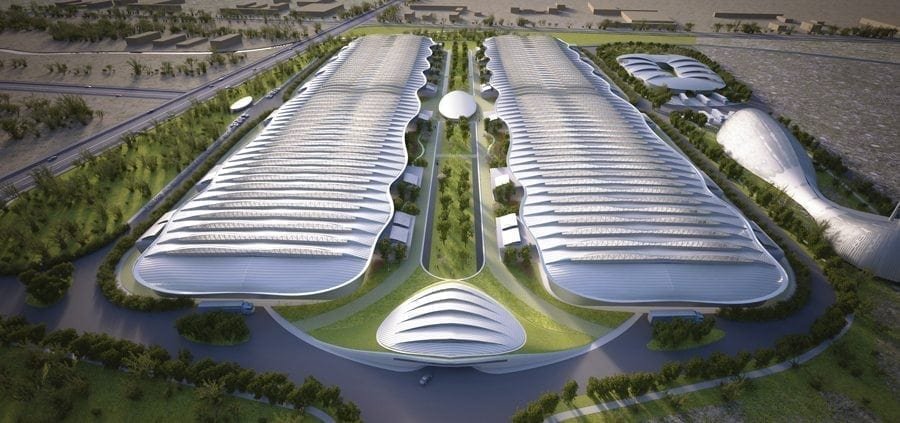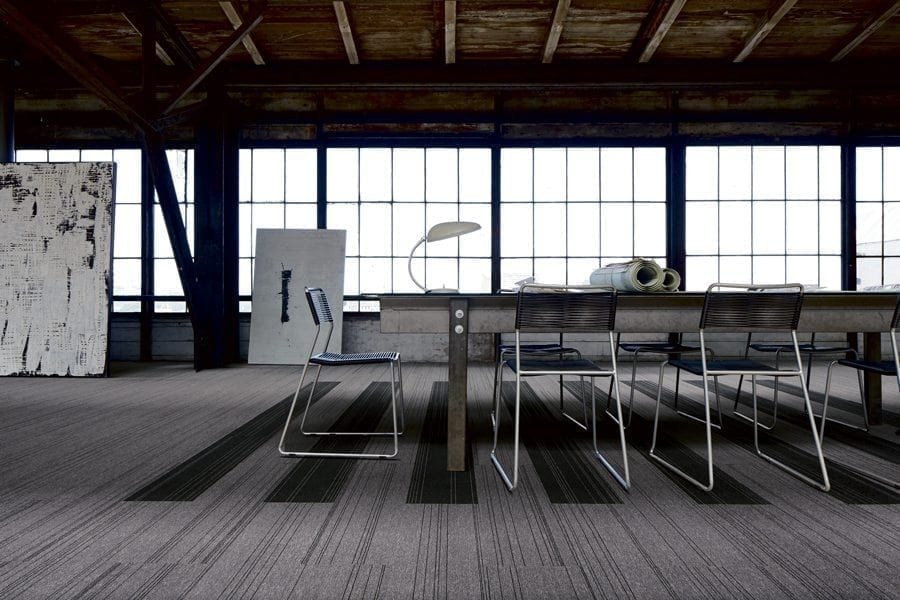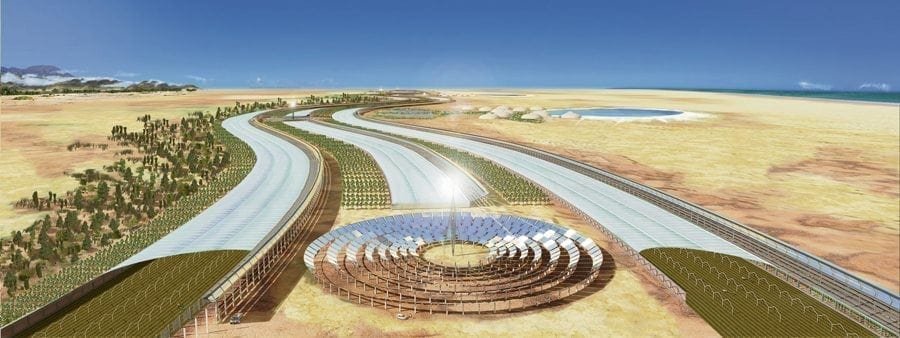‘When Ray stood up in ‘94 and said, ‘We’re going to be a sustainable company’, sustainability wasn’t fashionable; we had no roadmap. It was outrageous to think that an organisation could get to a zero footprint, and we were ridiculed for it. People stood on the sideline and watched us, waiting for us to fail.
‘We know now what the biggest issues of our generation — and frankly, our children’s generation — are, and that’s climate change, poverty and inequality on a planetary scale, on a species scale. We are bold and brave enough, as we did in ‘94, to stand up there and say, if not us, who? And if not now, when?’
NIGEL STANSFIELD
Interface’s vice president and cheif supply-chain officer
A series of workshops was convened to bring Interface together with its yarn supplier, marine biologists, development and sustainability experts. During these workshops, an opportunity was identified to source nets from artisanal fishing communities and turn waste into wealth in a way that would protect the marine environment.
Following a successful pilot, Net-Works has now been rolled out to 27 communities, with three collection hubs in the Philippines and one set up in Cameroon. To date, Net-Works has intercepted 100 tonnes of discarded nets, providing access to finance for over 500 families and a healthier marine environment for 55,000 people.
By 2020, the goal is for Net-Works to have provided access to finance for over 10,000 families, improved the marine environment for 1 million people and to have protected 1 billion square kilometres of our oceans.
Bringing carbon ‘home’
The broader vision has always been for Interface to be the first company that, by its actions, shows the entire industrial world the true, multi-dimensional meaning of sustainability – for people, process, product, place and profits. The aim is not just for Interface reduce its contribution to climate change, but rather to work towards solving the climate crisis on a larger scale that extends beyond one industry or organisation.
The company’s next mission – Climate Take Back – contains an unsurprisingly bold commitment to bring carbon home and reverse climate change. As if that’s not enough, Interface will at the same time be creating supply chains that benefit all life, making ‘factories that are like forests’ and transforming dispersed materials into ‘products and goodness’.
Interface has pledged to lower greenhouse gas concentrations in the atmosphere to reduce, not just stabilise, atmospheric gases and reverse rising global temperatures. ‘We will demonstrate that we can reverse the impact of climate change by bringing carbon home’, says Jay Gould, Interface’s president and chief operating officer. ‘We want to be able to scale that to the point where it actually does reverse the amount of carbon in the atmosphere.’
 The Net-Works programme
The Net-Works programme
The challenge of extracting carbon from the atmosphere – where it’s contributing to global warming – and bringing it ‘home’ to Earth – where it can be put to use – has had scientists scratching their heads for decades. Through Richard Branson’s Virgin Earth Challenge there’s even a $25 million prize on the table for anyone who works out a scalable and sustainable way of sucking carbon out of the air.
But Mission Zero sounded like a similarly lofty aspiration in the ‘90s – and Interface showed the rest of the world that even the most ambitious goals can be measured and managed like many other business tactics. Over the next year Interface will create metrics for each of the commitments outlined in Climate Take Back, and then define targets and timetables for achieving them.
And if any company can do it, it’s Interface.
Click here to find out more about Interface’s sustainability goals. More on Net-Works is here.
 Play Video about This Rock Might Just Save The World
Play Video about This Rock Might Just Save The World Play Video about Play 2 hours of rock
Play Video about Play 2 hours of rock Play Video about Play 2 hours of brook
Play Video about Play 2 hours of brook Play Video about Play 2 hours of sheep
Play Video about Play 2 hours of sheep














































